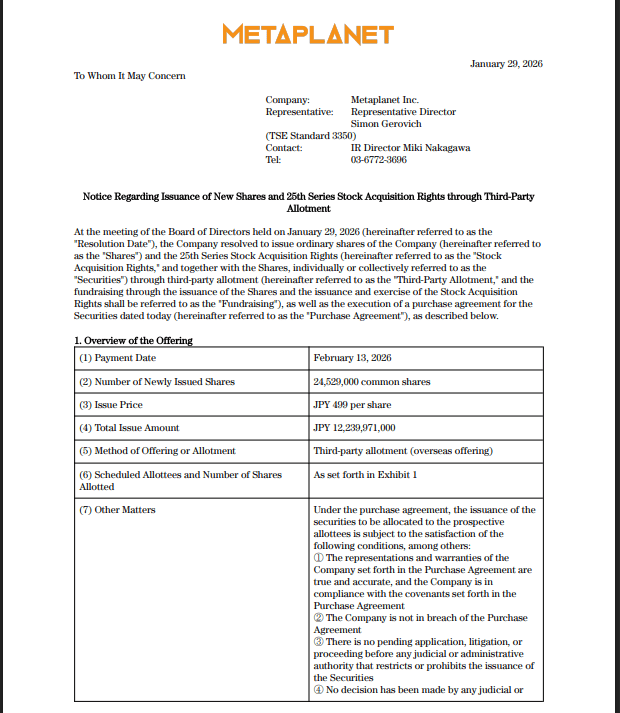In recent years, cryptocurrencies have significantly increased in popularity and attention, with Bitcoin serving as the most notable example. But, a rising worry about cryptocurrencies' environmental impact is what's driving their popularity.
The process of confirming transactions and adding them to the blockchain, known as cryptocurrency mining, consumes a significant amount of computer power. In this article, we'll look at the environmental issues raised by cryptocurrency mining and the pressing need for long-term solutions to lessen their effects.
The Energy Requirement for Mining Cryptocurrencies
In order to validate transactions, cryptocurrency mining uses strong computers to solve challenging mathematical puzzles. The majority of the energy needed for these calculations comes from fossil fuel sources. As a result, mining cryptocurrencies has a much larger carbon footprint, which increases greenhouse gas emissions and contributes to climate change.
When compared to conventional banking systems, cryptocurrency mining's high energy consumption is clear. For instance, Bitcoin mining uses more energy than entire nations like Argentina and the Netherlands combined. This trend in energy usage needs to be addressed immediately since it cannot continue.
Impact on the Environment and Carbon Footprint
A sizable carbon footprint has been created by bitcoin mining's enormous energy use. Most mining operations rely on energy produced by burning fossil fuels like coal and natural gas. By releasing greenhouse gases during combustion, these fossil fuels exacerbate environmental damage and climate change.
Additionally, the infrastructure needed for mining, such as specialised gear and cooling systems, adds to the waste of technological resources. These elements emphasise the demand for environmentally friendly options in the bitcoin sector.
Integration of Renewable Energy
Using renewable energy sources could be one way to alleviate the environmental issues raised by cryptocurrency mining. The carbon footprint of bitcoin mining can be considerably reduced and made more sustainable by switching to renewable energy.
Some progressive mining operations have already begun using renewable energy sources, including solar, wind, and hydropower. Mining can drastically lessen its negative effects on the environment by utilising these renewable energy choices. The implementation of renewable energy in mining operations must be accelerated by cooperation between governments, mining firms, and industry stakeholders.
Energy-Efficient Mining Algorithm Development
The creation of energy-efficient mining algorithms can help create a more sustainable bitcoin business in addition to the inclusion of renewable energy. Traditional mining algorithms require a lot of computing power and use too much energy. However, entrepreneurs and academics are continually investigating substitute algorithms that use less computer power.
Proof-of-stake (PoS) and proof-of-authority (PoA) are two examples of energy-efficient algorithms that present intriguing alternatives to the widely used proof-of-work (PoW) algorithm that underpins Bitcoin. By lowering energy usage and lessening environmental effect, the adoption of these energy-efficient substitutes has the potential to completely transform the cryptocurrency business.
Change in Favor of Decentralization
Promoting decentralization is a further facet of sustainability in the bitcoin sector. Mining activities that are centralized concentrate power and energy use in particular areas, which has a greater negative influence on the environment.
Energy usage can be dispersed more equitably by promoting decentralized mining through the use of smaller-scale operations and distributed networks. Decentralization also encourages innovation and competition, which promotes the growth of more environmentally friendly mining techniques.
Initiatives for Carbon Offsets Based on Blockchain
The blockchain technology that powers cryptocurrencies can be used to create carbon-offsetting programs. Users can track and confirm their reductions in carbon emissions with the use of blockchain-based carbon offset initiatives, resulting in a transparent and auditable system.
The cryptocurrency business may actively reduce its environmental effect by using blockchain technology in carbon offsetting programs. These programs can encourage mining operations to lessen their carbon footprints and support initiatives that help the world become carbon neutral.
Exploring the Synergy between Crypto Finance and Environmental Concerns
As cryptocurrencies and digital finance gain momentum, concerns about their environmental impact have surfaced. However, it is essential to consider the broader picture and recognize that the growth of crypto and digital finance can coexist with environmental sustainability. In fact, governments themselves are embracing the potential of cryptocurrencies, with Central Bank Digital Currencies (CBDCs) on the horizon.
It, thus, becomes important to view crypto as a whole and recognize the potential for synergy between crypto finance and environmental sustainability. The industry is evolving, with a focus on energy efficiency, renewable energy integration, and innovative solutions. Furthermore, governments themselves are embracing digital finance, with CBDCs on the horizon. As the crypto sector matures, it has the potential to contribute to environmental solutions and foster a more sustainable financial system. With responsible practices, collaboration, and innovative technologies, we can achieve a balance between thriving financial systems and environmental conservation.
Environmental Impact of Traditional Finance
While concerns about the environmental impact of cryptocurrencies are valid, it is crucial to consider the environmental consequences of the traditional financial system. Traditional finance heavily relies on physical infrastructure, such as banks, branches, and transportation, which contribute to carbon emissions and environmental degradation. In contrast, digital finance and cryptocurrencies have the potential to reduce the carbon footprint associated with the traditional financial infrastructure.
The Role of Governments in Shaping Crypto Finance
Governments recognize the potential benefits of cryptocurrencies and digital finance, including the development of CBDCs. CBDCs offer governments greater control over monetary policy, improved financial inclusion, and enhanced security. Moreover, governments can enforce environmental regulations and encourage sustainable practices within the crypto industry. By working in conjunction with the private sector, governments can ensure that the growth of crypto finance aligns with their environmental objectives.
Blockchain for Environmental Solutions
Blockchain technology, the underlying technology behind cryptocurrencies, holds promise for addressing environmental challenges. Its transparent and immutable nature can be leveraged to track and verify the sustainability of supply chains, carbon emissions, and resource usage. Blockchain-based solutions can foster greater transparency, accountability, and traceability, enabling businesses and consumers to make environmentally conscious choices.
Conclusion
The environmental issues raised by bitcoin mining are a serious problem that has to be addressed right away. The mining process requires a lot of energy and the related carbon footprint poses serious obstacles to the cryptocurrency sector's viability. Nevertheless, the need for change is becoming more widely acknowledged, and a number of initiatives are currently underway to address these worries.
Making the switch to renewable energy sources, like solar, wind, and hydropower, is essential for making cryptocurrency mining more environmentally friendly. The industry can drastically reduce its carbon footprint and lessen the negative effects on the environment by lowering its dependency on fossil fuels.
A potential solution is also provided by the creation of energy-efficient mining algorithms. When compared to the conventional proof-of-work (PoW) method, energy-efficient solutions like proof-of-stake (PoS) and proof-of-authority (PoA) use less energy. Adopting these alternatives can transform the sector and advance the cause of a greener future.
Decentralisation is essential for fostering sustainability, as well. The mining sector can disperse energy usage and lessen the environmental effect associated with centralised mining by supporting smaller-scale mining activities and dispersed networks.
Additionally, there is a lot of potential for blockchain technology to be used in carbon offset programmes. The sector can create effective methods for tracking and certifying carbon emission reductions by utilising the transparency and traceability of blockchain. This makes it possible for cryptocurrency mining operations to efficiently offset their carbon impact and support efforts made globally to achieve carbon neutrality.
Governments, mining firms, and other industry stakeholders must work together and have a proactive stance when putting sustainable ideas into practice. The cryptocurrency sector may solve the environmental issues related to mining by funding research and development of energy-efficient algorithms, fostering decentralisation, and incorporating blockchain-based carbon offsetting efforts.
The environmental impact of cryptocurrency mining is a serious issue that needs immediate attention. However, the industry can pave the way for a more sustainable and environmentally friendly future by adopting sustainable practices, such as switching to renewable energy sources, developing energy-efficient algorithms, encouraging decentralisation, and embracing blockchain-based carbon offsetting initiatives.
The Bitcoin business can show its commitment to environmental responsibility and aid in the worldwide fight against climate change by giving these projects a top priority.
This article was written by FM Contributors at www.financemagnates.com.
You can get bonuses upto $100 FREE BONUS when you:
💰 Install these recommended apps:
💲 SocialGood - 100% Crypto Back on Everyday Shopping
💲 xPortal - The DeFi For The Next Billion
💲 CryptoTab Browser - Lightweight, fast, and ready to mine!
💰 Register on these recommended exchanges:
🟡 Binance🟡 Bitfinex🟡 Bitmart🟡 Bittrex🟡 Bitget
🟡 CoinEx🟡 Crypto.com🟡 Gate.io🟡 Huobi🟡 Kucoin.
















Comments